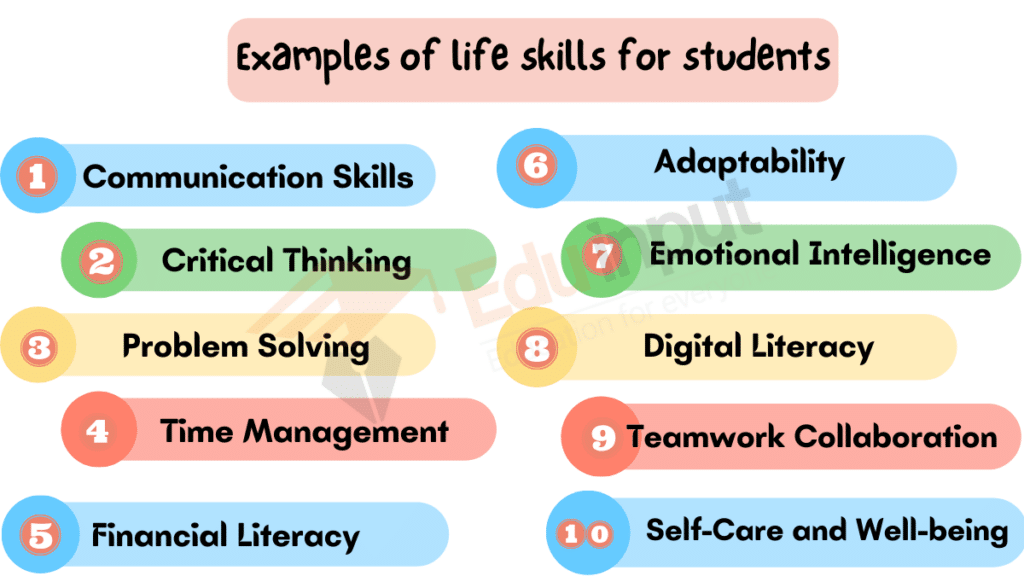10 Examples of life Skills for Students
Life skills are the building blocks of success in both academics and beyond.
As students embark on their educational journey, they also need to develop crucial life skills that will serve them well in the real world.
These skills encompass a wide range of abilities, from communication to problem-solving, and from financial literacy to time management.
In this blog post, we’ll explore examples of life skills for students that every student should strive to master.

Examples of life skills for students
1: Communication Skills
Effective communication is a key in both personal and professional settings.
Students should learn to express themselves clearly, listen actively, and adapt their communication style to different situations and audiences.
2: Critical Thinking
Critical thinking involves the ability to analyze information, evaluate arguments, and make informed decisions.
Students should be encouraged to question assumptions, think critically about issues, and develop well-reasoned opinions.
3: Problem Solving
Life is full of challenges, and the ability to solve problems is invaluable. Encourage students to approach problems methodically, break them down into smaller steps, and consider alternative solutions.
4: Time Management
Juggling coursework, extracurricular activities, and personal commitments requires effective time management.
Students should learn to prioritize tasks, set goals, and create schedules that help them stay organized and meet deadlines.
5: Financial Literacy
Financial responsibility is a vital life skill. Students should understand concepts like budgeting, saving, investing, and managing debt.
Teaching them about financial literacy early can set them on a path to financial security.
6: Adaptability
The world is constantly changing, and adaptability is essential. Encourage students to embrace change, learn from failures, and develop the resilience to bounce back from setbacks.
7: Emotional Intelligence
Understanding and managing emotions is crucial for building positive relationships.
Students should learn to recognize their own emotions and empathize with others, fostering healthy social interactions.
8: Digital Literacy
In the digital age, being tech-savvy is a must.
Teach students how to navigate the internet safely, discern reliable information from misinformation, and use technology as a tool for learning and productivity.
9: Teamwork and Collaboration
Many aspects of life require working with others.
Students should develop teamwork skills, including effective communication within groups, the ability to compromise, and the capacity to contribute to shared goals.
10: Self-Care and Well-being
Amidst the demands of academics, it’s important for students to prioritize their mental and physical health. Encourage them to practice self-care, manage stress, and establish healthy routines.
As students progress through their education, they have the opportunity to not only gain knowledge but also acquire these vital life skills.
These skills will serve them well as they transition into adulthood, helping them navigate the complexities of the real world with confidence and resilience.
By prioritizing the development of these skills alongside academic learning, we can empower students to thrive in all aspects of their lives.



Leave a Reply